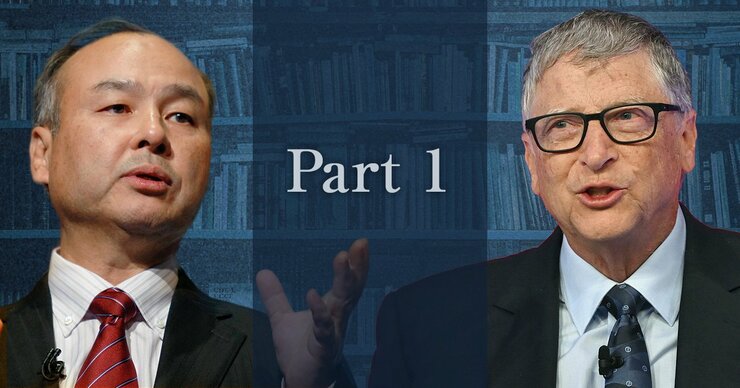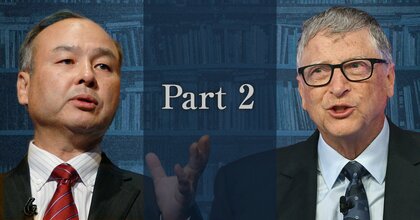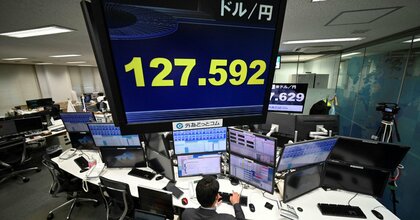Originally published in Japanese on February. 20, 2024
Job hunting styles
As PayPal's Japan business leader, I often receive LinkedIn requests from overseas college students who are not my acquaintances. Japanese people may be surprised to learn that they are allowed to contact the president of a company so casually during their job hunt. However, I believe such actions demonstrate the flexibility that can help build a career by considering future steps and opportunities after every failure.
Although job hunting is similar worldwide, Japan and foreign countries have different approaches. Perhaps the biggest is that in the U.S., people do not intend to spend the rest of their lives at the company where they start their careers. In the U.S., people look for new opportunities even after starting work, seeking to find other interesting things to do or acquire new skills while they work. In contrast, Japanese job hunting is generally stricter and more serious, exerting pressure on job seekers who attach immense weight to their future decisions.
But the world is changing so fast that it is hard to know if the company you join, or the type of business itself, will still exist in 10 or 20 years. Artificial intelligence could even replace jobs deemed "elite" not long ago. In any case, there are many uncertainties.
In Japan, people may sometimes continue to work at jobs they do not like simply because they put in considerable effort to obtain them. In the U.S., individuals may stay in a company they like but acquire new skills to pursue their next career path.
During my time at McKinsey, I experienced the issue of "stickiness" among Japanese job seekers. In one case, a foreign company acquired a major Japanese company, leading to employee redundancies and a voluntary retirement program (VRP) for experienced staff. The company wanted skilled and knowledgeable employees to stay. However, in such cases, "reverse selection" often occurs, with excellent people opting to retire.
In this case, the company was taken aback when a staff member with 18 years of experience chose to enroll in the program. However, they soon discovered that in Japanese companies, employees with less than 20 years of experience were considered young, and seasoned employees with over 30 years of work performed at a higher level. On the other hand, foreign companies thought that young employees had worked for approximately 5 to 6 years. This case exemplifies the gaps in expectations between Japan and other countries.
On-the-ground lessons
My entry into McKinsey was somewhat unorthodox. Initially, I was a lawyer, and after obtaining my license, I worked for a law firm. In the U.S., it's commonplace for lawyers to seek opportunities before settling on a job, and I was no exception. One day, while working in New York, I was invited to a cocktail party hosted by McKinsey. During the party, we discussed various topics, including China's development, which piqued their interest, leading to an interview and later, a job offer. However, the decision was mine to make: China, Japan, or remain in the United States.
With an understanding of Chinese and a growing interest in the country, I chose to start in Hong Kong before ultimately moving to Beijing to establish a new office. I was there from 1996 to 2001 as an Associate, 1 working on problem-solving and consulting. One project, in particular, involved creating a database on the methods and frequency of selling children's clothing in High Street 2 stores in China, which presented a significant challenge since no reliable data existed.
Market research was necessary, so I took to the streets with a colleague, scouring the shopping streets of Beijing in the middle of winter to gather information. The valuable experience taught me the importance of hands-on work. Even decades later, I continue to employ the same approach in both Japan and the United States when gathering information.
One of my most interesting experiences took place in Tokyo around 2015 when I was a senior partner at McKinsey.
The jewelry market in Japan was disrupted by an influx of jewelry during the bubble economy, and pawnshops were unable to manage it effectively due to a lack of reliable information on sales prices and gross margins. I realized that collecting information was imperative and decided to give one of the best young consultants in Japan a wad of 1 million yen ($6,400 at current exchange rates) to buy jewelry from one pawnshop and sell it at another. The strategy allowed us to gather data on buying and selling prices for various types of jewelry and create a highly detailed database, impressing many with our practical approach.
My background as a lawyer helped me focus on integrating various business processes, such as corporate finance and mergers and acquisitions. When I became a partner 3 in 2001, I gradually shifted my focus to Japan since I spoke the language and my family was Japanese. As a partner, I worked on technology practices 4 in Japan, corporate finance practices throughout Asia, and semiconductor practices globally.
Initially, I focused on hardware technology, and it was not until joining PayPal that I started taking up software-related work. Even now, I remain hands-on and continue to learn through trial-and-error with the help of my junior-high-school-age son and the younger generation who are smartphone natives - Generation Z, as described in the article "Gen Z is set to revolutionize e-commerce. Can businesses keep up?”
1. McKinsey Associates collect and analyze information, working under a manager who is responsible for directing projects.
2. Mass marketing that sells large quantities of trendy clothing at low prices on High Street (Main Street), which is a method that now overlaps with fast fashion.
3. A co-leader at McKinsey refers to a person who is ultimately responsible for the firm, including business decisions, human resources, office management, etc.
4. Practice at McKinsey refers to research & development and knowledge in a specialized area. Consultants at McKinsey who are strong in a particular practice participate in consulting projects to solve problems.
Competing globally
The Nikkei recently reported that Japan's digital competitiveness is now ranked 32nd, the lowest it has ever been, due to a lack of human resources. I think the article is correct. When introducing a new PayPal payment system, large companies usually have technical personnel to handle the task, but small and medium-sized companies often do not. Without the help of someone like a systems integrator to assist with implementation, the process can be challenging.
In the U.S., owners of startups and similar small businesses who are not engineers tend to be perceived as less knowledgeable, so one's background often makes a difference. Many of the startup managers I know come from consulting or finance backgrounds, but some also come from engineering backgrounds because management is not unrelated to the world of engineering. The reality is that there is a shortage of systems integrators who can help small and medium-sized businesses even implement PayPal.
This is not to say that there are no talented engineers in Japan; there are many excellent engineers in universities and other institutions. What I mean is that engineers should broaden their horizons and consider starting their own companies to help other small and medium-sized companies. I hope that engineers in Japan will realize that they can become business managers and passionately create environments and organizations where people can thrive.
Of course, such firms can be acquired by a large systems-integration (SI) company, but they can also pursue more exciting paths. Why shouldn't engineers be more entrepreneurial? Having experienced different business scenes in different countries, I have the impression that Japanese people demonstrate a remarkable level of seriousness. They are trustworthy, do their job by the book, and rarely act out of the ordinary. In the U.S., China, and Southeast Asia, the situation is much more open; of course, there are people you can trust with your work, but there can also be difficulties.
The situation is more predictable in Japan, but few people go beyond their assigned tasks and duties to make suggestions. In fact, there is an atmosphere where suggestions are not welcomed. In PayPal's Japanese team, non-Japanese people often make such suggestions. Perhaps due to cultural differences, young Japanese employees in their 20s often do not voice their opinions to the president. For managers, however, it is actually very gratifying to have someone bring a different point of view to the analysis. Second opinions are important and can help avoid big mistakes.
Secrets in hiring and leadership
When it comes to hiring the right person for the job, it can be difficult to know them deeply at the first meeting. At PayPal and McKinsey, we prioritize essential job skills, flexibility, charisma, interesting viewpoints, and a genuine passion for the work. However, the most crucial factor I look for is a candidate's trustworthiness.
There are notable differences between Japanese-owned companies and overseas ones like PayPal and McKinsey, as we take a unique approach to talent management. Unlike the mechanical personnel systems that are commonplace in Japan, foreign firms prioritize optimizing employees’ talents and career aspirations within the company. An effective human resources team will focus on developing individuals and guide them toward becoming excellent managers.
To keep the company's wheels turning, the leader takes responsibility for establishing a shared vision, sets priorities, and creates an environment where all team members can work effectively. The goal is to create a positive work culture that ensures every team member is committed to achieving the company's vision and goals. As a leader, you grow, developing a better understanding of how to support and motivate your team members to perform optimally.
Peter Kenevan is the VP and Head of PayPal Japan. He has more than 25 years of work experience at McKinsey & Company, a leading consulting firm, and has been a senior partner in the Tokyo office for many years. The views expressed here are his own.











